The “ZeroWaste Goes to School” program was initiated with the aim of promoting environmental consciousness and sustainability among elementary school students. To educate elementary school students about the importance of reducing waste, waste separation, composting, and environmental sustainability. Our sincere hope is that the program will yield favorable results in terms of behavioral change so they will adopt eco-friendly habits and practices in their daily lives and involve actively in making their school and community more environmentally friendly.
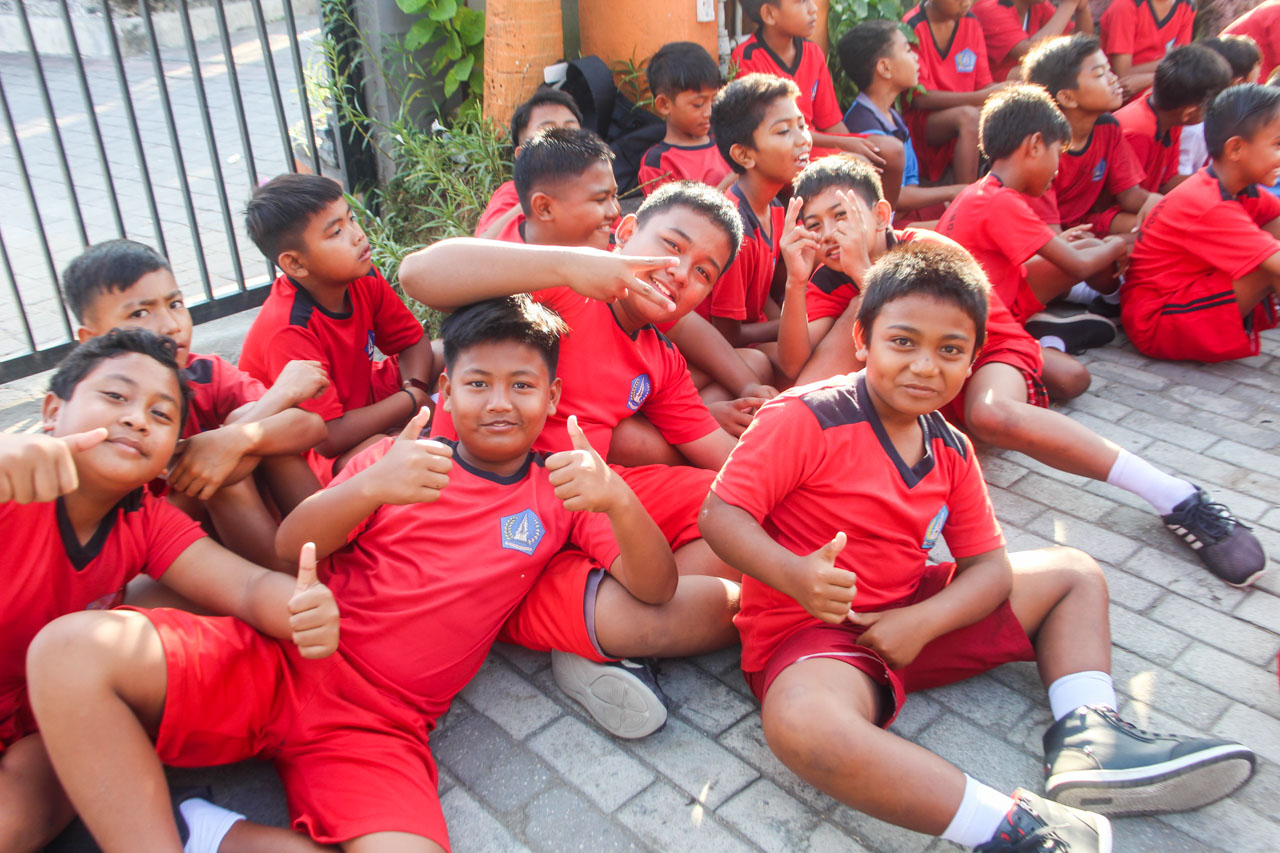
This week ZeroWaste by R.O.L.E. Foundation visited SD 1 Tanjung Benoa on 29th August 2023. SD 1 Tanjung Benoa is strategically situated in close proximity to the picturesque beach shore, a location that offers an invaluable advantage in terms of fostering an understanding and appreciation for nature among its students. This scenic backdrop not only enhances the aesthetic appeal of the school but also serves as a natural classroom for ecological education and environmental stewardship.
The school realized of their closeness to the environment, so they took a step closer to becoming a sustainable community. They used to prepare several trash bins for the students, but like some of elementary schools, they faced the same problem. It is still hard for the teachers to raise the understanding of the students about waste separation. So, this is where we came across to educate and encourage 346 students about sustainability.
The program featured two interactive workshops: Waste Management and Composting. These workshops were designed to be engaging and age-appropriate, ensuring that the students could easily grasp the concepts. The first workshop was waste management. In the initial workshop on waste management, students explored several important topics. They discovered the different kinds of waste we generate in our daily lives, such as plastic garbage and organic waste. Moreover, they learned why it’s crucial to handle waste correctly to protect our environment and our health. Lastly, they found out about seven types of plastic and how to identify them.
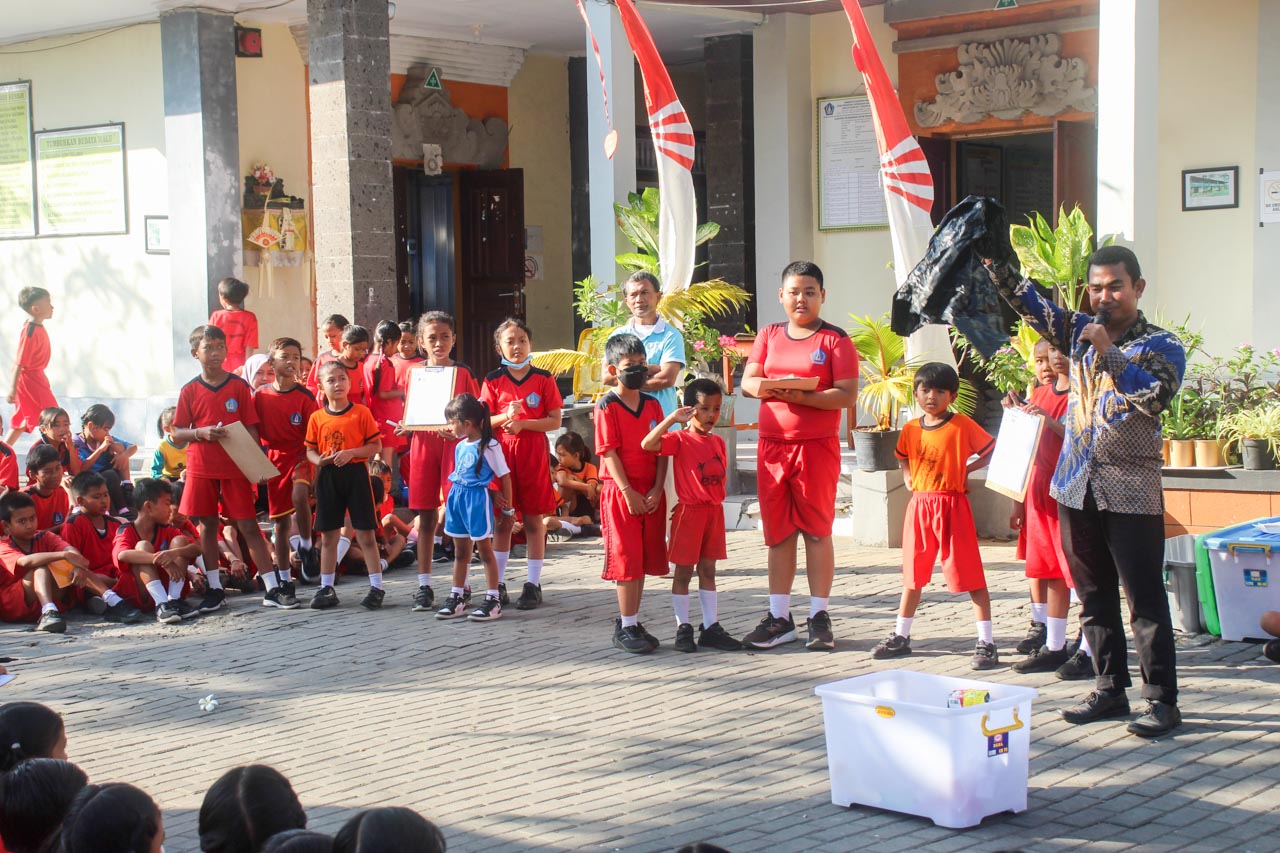
To put their newfound knowledge into action, students took part in a “Plastic Sorting Challenge.” Here, they had to sort various types of plastics, showcasing their understanding of these materials. What stood out was the students’ excitement and their impressive accuracy in sorting the plastics. This activity revealed their strong commitment to responsible waste management, making it clear that they are eager to make a positive impact on the environment.
The second workshop was composting. Students had the opportunity to participate in a hands-on composting activity. They learned how organic waste can be turned into valuable compost, reducing the need for chemical fertilizers and minimizing waste sent to landfills. Furthermore, it’s worth mentioning that the students demonstrated an impressive understanding of composting. They were able to explain the essential elements needed for composting and the step-by-step process with clarity.
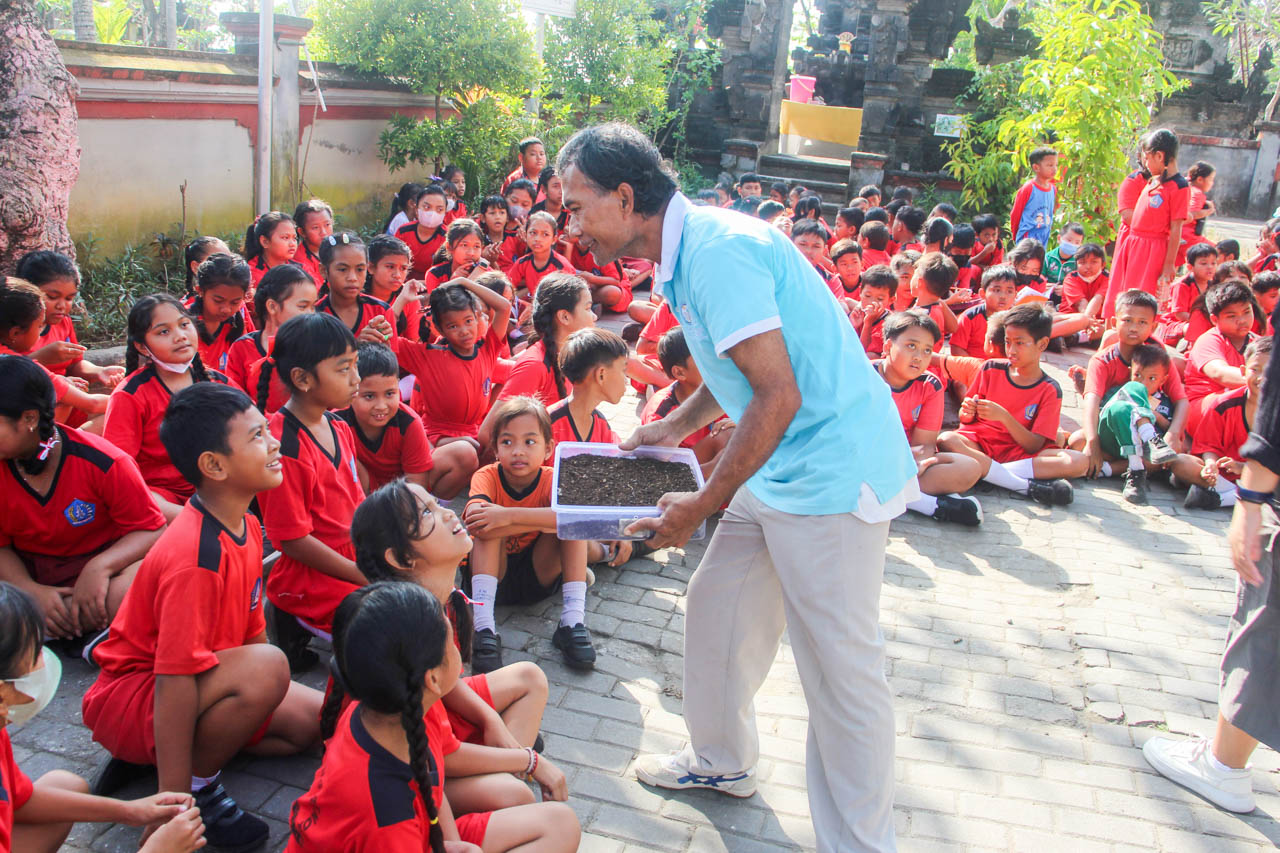
They knew that successful composting requires specific ingredients that they can find in their daily lives like kitchen scraps, yard waste, and manure. They also understood the importance of maintaining a balanced carbon, nitrogen, and microbes ratio. In addition, they recognized the significance of actions like keeping the compost pile well-aerated, controlling moisture levels, and regularly turning the pile.
At the end of the program, we invited three students to the stage to explain what they had learned about waste management and composting. Their responses, presented in front of their peers, indicated a solid and general understanding of these crucial subjects. While they didn’t delve into specific details, their ability to share the basic concepts and highlight the importance of waste management and composting demonstrated that the program effectively conveyed fundamental principles to them. This public sharing of knowledge underscored the success of the program in instilling these essential concepts in the students’ minds.
The “ZeroWaste Goes to School” program at SD 1 Tanjung Benoa was a resounding success. The elementary school students demonstrated engagement and understanding of environmental sustainability concepts. The program not only educated the students but also inspired them to become advocates for a more sustainable future. It serves as a shining example of how environmental education can make a significant impact on young minds and communities.
Play a ROLE!
Support this activity by donating to ZeroWaste Center by clicking here!
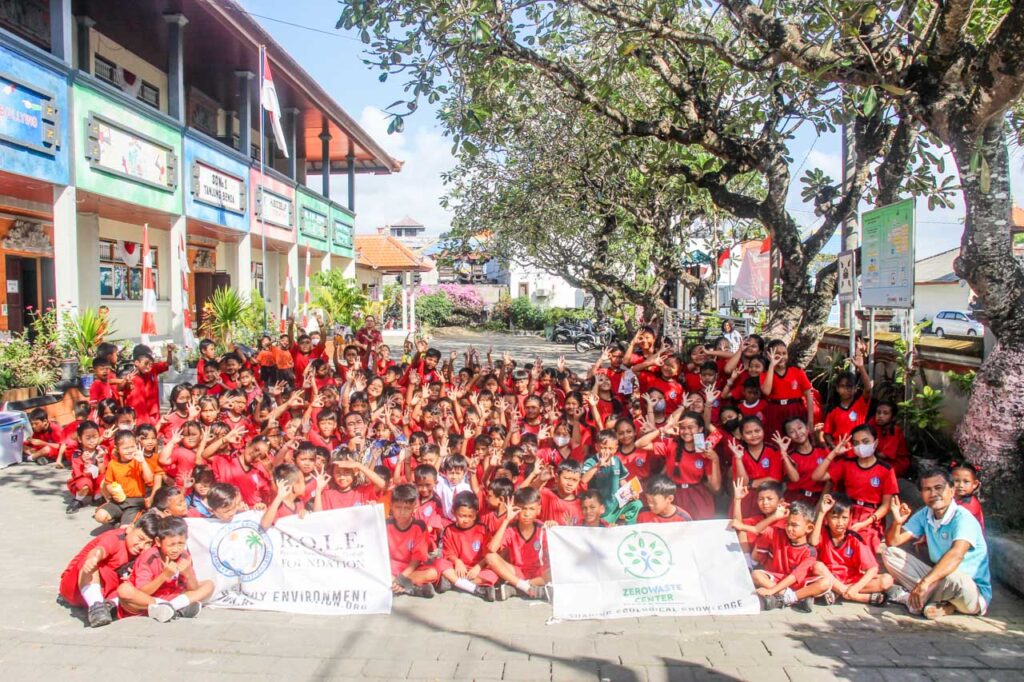

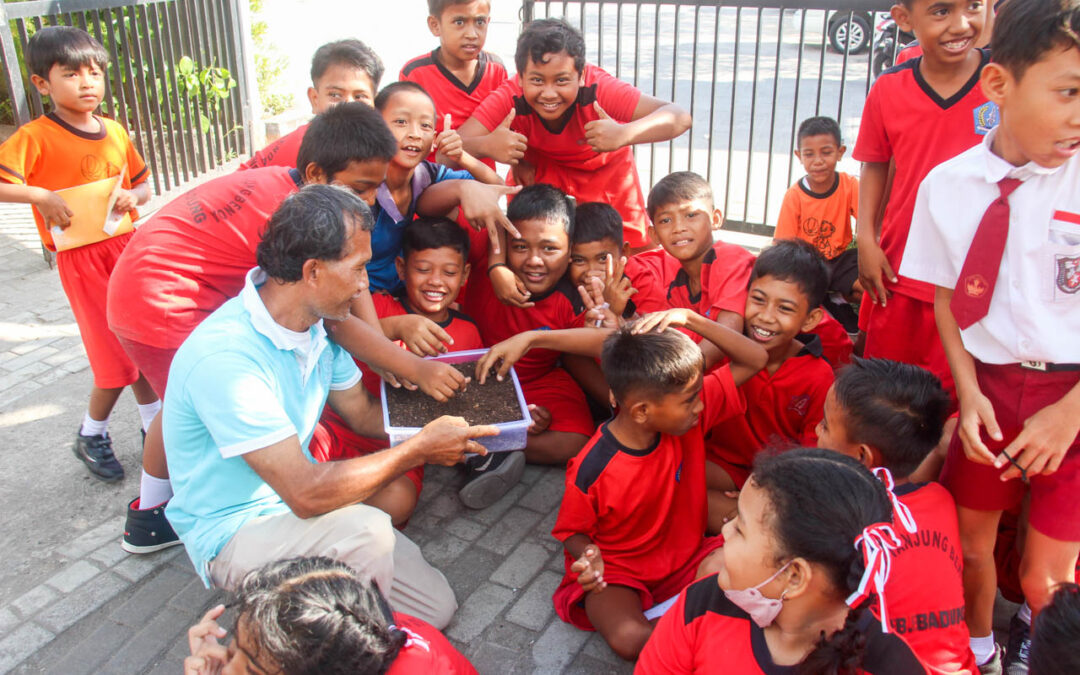
Recent Comments